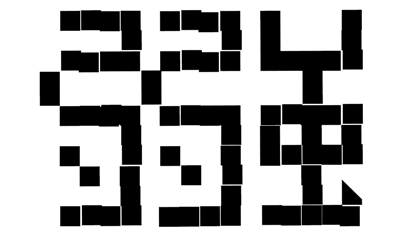How our project began
The “Yowai wa Tsuyoi” Project was born from the will of the executive members of the Japan Rugby Players Association to do more for rugby players in Japan.
When our team looked into the activities of players’ associations in leading rugby nations, we found that there is a system called the Players Development Programme (hereafter PDP), which supports players in four different areas. The areas are “legal” such as aid with contracts, “financial” such as asset management, “career” such as life after retirement, and “mental health.” The PDP is a comprehensive support programme rooted in wellbeing that focuses on these four key areas, and aids athletes with their wellbeing both during and after their athletic careers.
The COVID-19 pandemic was a time of uncertainty for many athletes. Facing an unpredictable future, many realised that they not only have to hone their skills and physical health, but also take care of their mental wellbeing.
Here, let me introduce a metaphor.
If you provide medicine to a sick goldfish, the goldfish will not be able to live without the medicine. However, if you improve the condition of the aquarium, the goldfish will become healthy and happy.
While the PDP’s initiative to promote athletes’ wellbeing is a mechanism to aid the individual or the ’goldfish,” we thought it was necessary to approach society as a whole, or the “aquarium,” which would include the rugby teams, fans and media coverage surrounding the players.
We wondered if the Japan Rugby Players Association could raise awareness regarding mental health, and spread meaningful information to the greater society. To understand the lived reality of athletes better, we interviewed rugby players and top athletes across many sports.
There was a common thread among many of the answers – “Athletes are human beings, just like everyone else. We get scared and have negative emotions, too.”
This led us to think about what strength really means. No matter how strong a person looks or how happy they seem, we can’t really know what is going on in their mind. Even athletes who have achieved unimaginable feats and appear strong on the outside say that they are always under significant pressure. A life without worries or anxieties would be great, but life isn’t easy for any of us. Even within everyday life, the unexpected can happen at any time.
‘Weak’ and ‘strong’ are mere words, and the meaning people attach to them are subjective. Within every person, there are times when they are “strong” and times when they are “weak.”
Listening to the voices of athletes, I realised that we are all vulnerable beings, and that athletes are people who face and accept their weakness in order to be strong.
We wanted to truly understand and affirm the efforts of these athletes who place so much pressure on themselves everyday, both physically and mentally. This was how we came to the concept behind “Yowai wa Tsuyoi.”
Even among athletes, rugby players are regarded as strong and powerful, so we thought it would be especially meaningful for these athletes to be the voice of the movement. Rugby players are human beings and are both strong and weak, just like everyone else. There is nothing wrong with that.
“We want to create a world in which everyone can embrace their weaknesses, and be accepted as they are.”
This is the vision of the “Yowai wa Tsuyoi” project. We especially want people to have the courage to accept their own weakness, and the compassion to accept the ‘weakness’ of others.
If we all share the weakness within our hearts, we can create a society in which we can bring forth everyone’s strengths.
We hope the words “Yowai wa Tsuyoi” or “Yowatsuyo” will help people realise that strength and weakness go hand in hand, and that neither are inherently good or bad. It is our hope that “Yowatsuyo” will become a part of our everyday vocabulary, and will even spread from Japan to the world.
(Text by Goro Yoshitani)
Lectures
- World Mental Health Day 2021
- The “Mental Health with Everyone” Symposium organised by the Toyota Foundation
- Johnson & Johnson
- Higashikurume City
Media Coverage
- “Forbes JAPAN” (March 2023 issue)
- “TSUKIJI Tsukiji Honganji Shimpo” (July 2021 issue)
- “news ZERO” (Broadcast 30 June 2021)
- “Hodo Station” (Broadcast 3 June 2021)
- “ONE MORNING” on TOKYO FM
Awards
- Forbes SPORTS INNOVATION PITCH 2022″ Grand Prize
Project Member
Shin Kawamura
Director/Athlete Speaker
Goro Yoshitani
Producer/Planner, Editor
Yasutaka ojio
Doctor/mental fitness researcher
Doctor of Education (specialty: health education)

